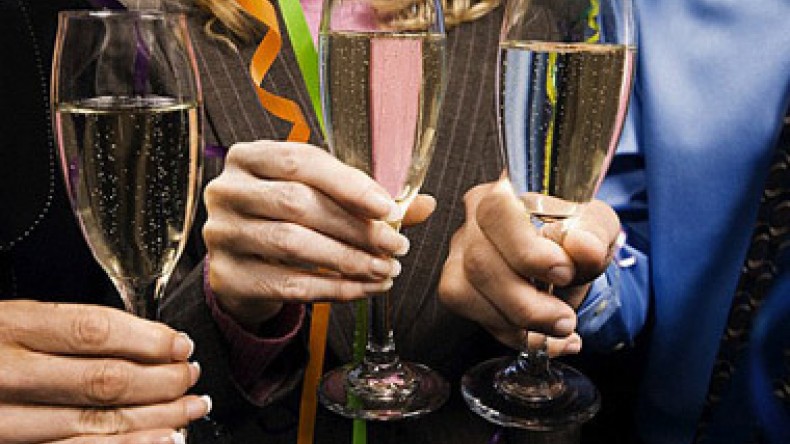
The best ways to hide the fact you're not drinking at the Christmas party but let everyone think you are
Social events which inevitably involve a glass of wine or a gin and tonic can be a nightmare for those avoiding alcohol.
But new research shows tee-totallers have come up with various ways of getting out of drinking without arousing suspicion from their colleagues, the Daily Mail reports.
From volunteering to be the designated driver to pretending they are trying to lose weight, a study found workers use such excuses as they don't want to be seen as a 'holier-than-thou' non-drinker.
'Drinking can be a big part of workplace culture, and being viewed as an outsider for any reason can hurt you professionally,' said the study's lead author Dr Lynsey Romo, of North Carolina State University.
'In our study, we interviewed successful professionals who don't drink,' Dr Romo said. 'We found they felt being a non-drinker was a form of deviance.'
However workers reported they didn't want to miss out on the career opportunities that come from networking and socialising.
Sometimes, attending functions was a requirement of their job.
'Non-drinkers developed a variety of strategies to attend social events without making themselves, their co-workers, or their clients feel uncomfortable,' Dr Romo added.
The researchers found most non-drinkers didn't announce the fact that they were not drinking because they didn't want to draw attention to themselves.
While some would answer honestly if asked, many declined a drink in ways that made their non-drinking ambiguous.
For example, instead of saying 'I don't drink,' they said things like 'I'm not drinking tonight' or 'I've got an early morning'.
Not wanting to be seen as judgemental or 'holier-than-thou', some would buy an alcoholic drink but not drink it, in order to fit in with their colleagues.
If colleagues twigged that they weren't drinking, some non-drinkers would find ways to show they didn't have a problem with drinking by buying a round of drinks, or volunteering to be the designated driver.
Others tried to use humour to defuse any social tension.
Other non-drinkers would use socially acceptable 'excuses' for not drinking to avoid being seen as judgemental.
For example, one professional who didn't drink because he wanted to set a good example for his children told co-workers that he didn't drink because he was trying to lose weight.
Similarly, another professional, who didn't drink because she was taking prescription drugs to deal with a mental-health issue, told co-workers that alcohol gave her migraines.
The research shows there is perceived pressure to conform to social norms in the workplace, the researchers argued.
Newsfeed
Videos






























